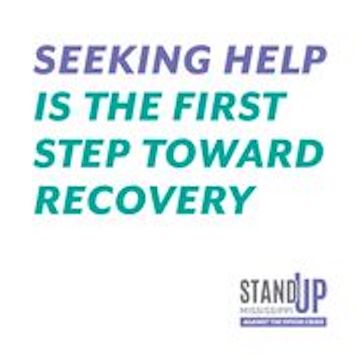Department of Mental Health, Bureau of Narcotics join to raise awareness
Published 3:53 pm Thursday, May 6, 2021
by Sean Tindell and Wendy Bailey
In 2020, as many as 508 Mississippians died of drug-related overdose deaths. Only three years prior, in 2017, the Mississippi Bureau of Narcotics (MBN) recorded 263 drug-related overdose deaths. That number increased again in 2018, to 344 Mississippians, and again in 2019, when 392 died. This alarming increase is why MBN and the Mississippi Department of Mental Health (DMH) have joined efforts to warn Mississippians about the danger of these drugs and to offer help to those in need of substance use treatment.
The consistent annual increases in drug-related deaths can be attributed to two factors: expansion of the opioid epidemic from primarily prescription drugs to primarily illegal ones, and more recently, the added stresses, pressures and unemployment people everywhere have experienced because of COVID-19.
In the past, prescription opioids have been the primary contributing drug to overdose deaths. In recent years, the illicit drug market has evolved to use science and technology that allows it to increase production and availability of both heroin and fentanyl, as well as to refine methamphetamine. All of these drugs are very highly addictive and highly potent, and each one of them contributes to the synergistic effect that results in drug-related overdose deaths.
MBN agents in the state see a mixture of heroin, fentanyl, methamphetamine, and ecstasy. Often drug buyers have no idea what’s in the drugs they’ve just purchased. Pill presses cause people to think that they are purchasing a prescription opioid like Oxycodone or Lorcet but are actually buying illicit drugs containing methamphetamine, heroin and fentanyl that are pressed into pill form.
MBN compiles its data on drug-related overdose deaths with the Mississippi forensic lab, which uses MBN figures as well as overdose death information provided by Mississippi coroners. Though prescription drugs still account for some drug-related overdose deaths, physicians and pharmacists should be commended for consistent decreases in the numbers of prescribed and dispensed opioids in recent years. In 2020, 124.1 million dosage units of opioids were prescribed in Mississippi, compared to 200 million in 2015. However, whether because of misuse, abuse or addiction to prescribed opioids or illegal ones, people in Mississippi are still dying at consistently increasing, alarming rates.
Often, overdoses don’t get reported because people are not aware of Mississippi’s Good Samaritan Law, which allows people present at an overdose to report an active overdose or overdose death and not face prosecution. The Good Samaritan Law not only provides a shield of protection to those who report an overdose, but also allows MBN to develop a clear idea of the type and source of the drug that was involved. It also helps MBN to understand the numbers of overdoses occurring in the community and the demographics and environment that make overdoses possible. There’s more than one way to report an overdose. If the person is in immediate danger, you should call 911. You can also report the overdose to Crime Stoppers at 1-888-8CRIMES (1-888-827-4637), to MBN at 601-371-3600 and by email to mbnoddeath@mbn.ms.gov.
Fortunately, not all overdoses are fatal, and help is available. Stand Up, Mississippi is a statewide initiative of DMH focused on putting an end to the opioid crisis in our state and fighting the stigma associated with the disease of addiction. Through a State Opioid Response grant, DMH provides funding to alcohol and drug addiction treatment centers across the state to help people who are addicted to opioids. This funding has allowed treatment providers to help hundreds of Mississippians recover from the disease of addiction. Information about those providers can be found at www.standupms.org. Most importantly, Mississippians should understand that recovery is possible, and we can change the trajectory of opioid overdoses and overdose-related deaths in our state. If you or a family member needs help, reach out through Stand Up, Mississippi. Help is available and is provided by caring professionals who are seeing lives restored each and every day.
Additionally, law enforcement agencies, first responders, and community members statewide have access to Narcan® Nasal Spray, a prescription medicine used for the treatment of a known or suspected opioid overdose emergency. NARCAN® Nasal Spray may counteract the life-threatening effects of an opioid overdose. Because most accidental overdoses occur in a home setting, it was developed for first responders, as well as family, friends, and caregivers —with no medical training required. More information about accessing Narcan in your community can be found at www.standupms.org/naloxone/.
In a rural state like Mississippi, which has a population of 2.9 million, 508 people dying is significant. Up to 25 people are impacted by just one drug-related overdose death. When as many as 508 people die, approximately 12,000 individuals are impacted. If we continue to ignore this issue and succumb to the stigma related to seeking treatment, we will continue to have people die from the disease of addiction.
For additional information on treatment and recovery resources, visit www.standupms.org or call the Mississippi Department of Mental Health Helpline at 1.877.210.8513.

Sean Tindell

Wendy Bailey
Sean Tindell is Commissioner of the Mississippi Department of Public Safety and Wendy D. Bailey is Executive Director of the Mississippi Department of Mental Health.






